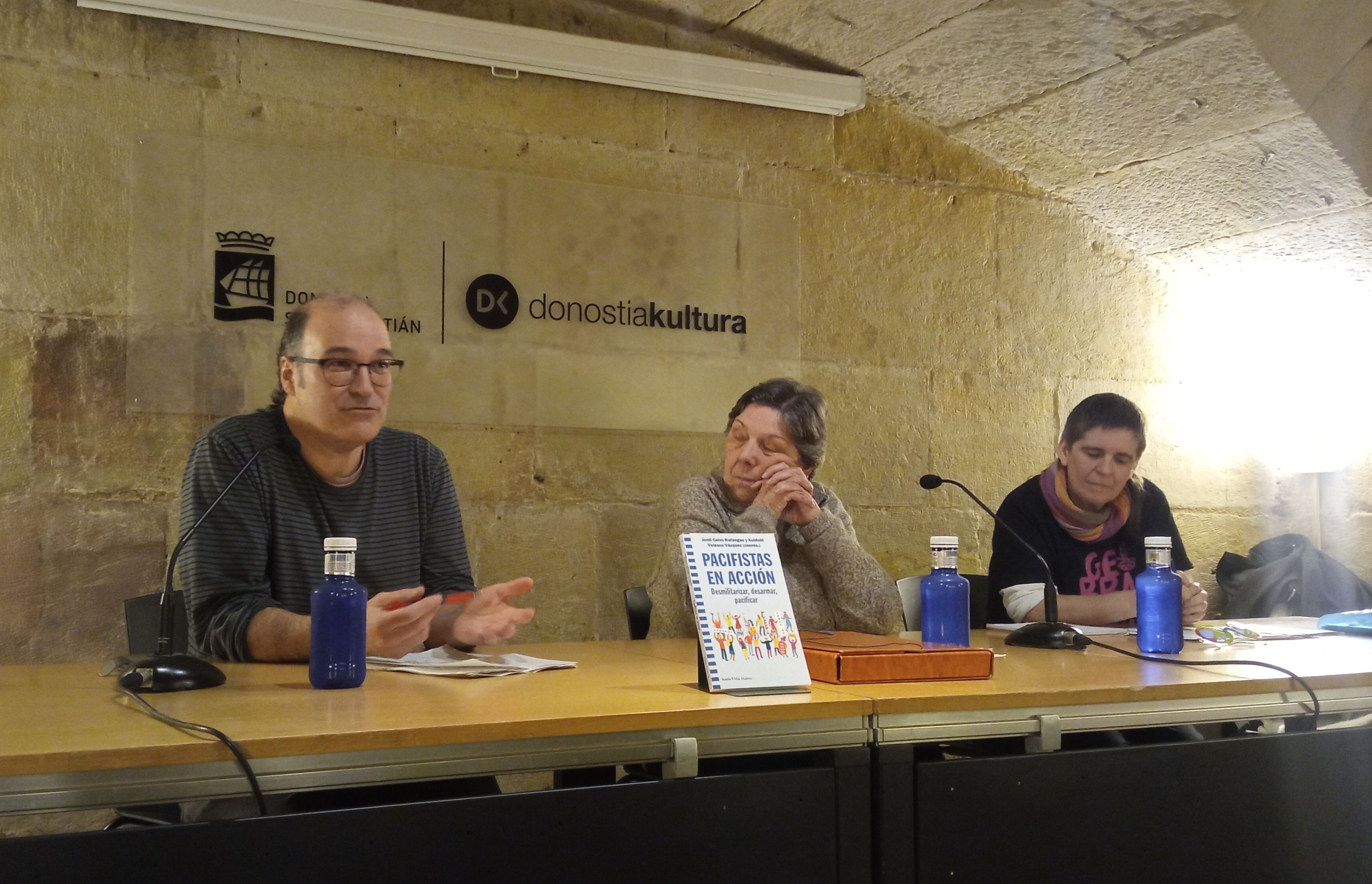The Aperribay family and the arms company SAPA, in a book published by the Antimilitarist EH
- SAPA of the Aperribay. The war begins here (SAPA of the Aperribayes. The war starts here) investigates the “political support” and “impunity” of the company SAPA and denounces the arms industry of the Basque Country. The bookstore Kaxilda has denounced a “serious incident” related to the presentation of the book.

The book was made by the antimilitarist group of Vitoria, but Antimilitarists have published it on behalf of EH (Feminist Antimilitarist Group Armiarma; Action de Paz Antimilitarista; Bardenas libre; KEM-MOC of Bilbao; Women against War; Vitorians; Sin Guerra is Jaizkibel; Military; As explained in the introduction, it is time that the anti-militarist groups of Euskal Herria began to meet to reflect together and drive some initiatives, and the idea of denouncing the arms company SAPA, which from the outset brought together one of the “greatest consensus” has been: “One of the most offensive examples of death merchants in Euskal Herria.”
Although the origin of SAPA is delayed by five centuries, the book has focused research in the period after 1985, when “some members of the Aperribay family took control of the company.” What was originally going to be a report has become a book, “because what we have found goes beyond the original image we had of SAPA,” according to its authors. The research highlights, among other things, that SAPA is associated with some twenty companies “far from being a small business group”.
Impunity
The book says that SAPA’s political support is broad and broad, “apparently one of the axes of business policy”, and that this support guarantees it “impunity”. This impunity would be materialized in three main ways: debts of millions of euros with public institutions, yields obtained by the soils of their property, called “pelotazos”, and adaptations that it obtains in the conditions of public money loans, “that save it ten million euros”. The book investigates several such cases.
Ibon Aperribay Head of SAPA in Kaxilda?
The book places Joaquín Aperribay Elosua and his sons Ibon and Jokin Aperribay, also president of the Real Sociedad, along with Enrique Falcó Carrión and Alejandro de Calonje Hoces. The study was presented on Friday by the antimilitarist of HD in Donostia, in the morning in Koldo Mitxelena and in the afternoon in the Kaxilda bookstore.
Kaxildak denounces a “serious incident” related to the presentation of the book. As he published in a note, on Saturday morning a man entered the bookstore and told a laborer, pointing out the cover of the book, “I am from the photo.” In view of this, the question note says, “Is it possible that Ibon Aperribay is the same?” Kaxilda denounces the attitude of this man:
“This person, while giving two blows on the back (in a totally sociable way) to the person who is working and who has welcomed him, confirms it in a close and aggressive way: ‘Sorry for you, you have a nice place, I have been here on your terrace, but you are wrong to let this presentation be done in your space. Yes, I am sorry for you.’” Kaxilina qualifies the incident as “serious” and calls on the citizens to show their solidarity with the project.

Since the Middle Ages the arms industry has been of great importance in the Basque Country. Knowledge of the technique of iron production since ancient times allowed the industrialized production of weapons.
However, the network of bars that generated fortune meant other... [+]
That is why we agree that different social groups working in different spaces next Saturday, March 11, at 17:30 in Bilbao no! with your call for mobilization under the motto. Basque Country anti-imperialist!
Forgotten because in the initiative 1936-1977 we have differentiated... [+]
It seems that it was yesterday that we woke up with an incomprehensible (or perhaps not so) surprise. Russian troops crossed the border with Ukraine to conquer their Western colleagues. They soon entered the Donetsk basin, but they also crossed the border between Belarus and... [+]



















